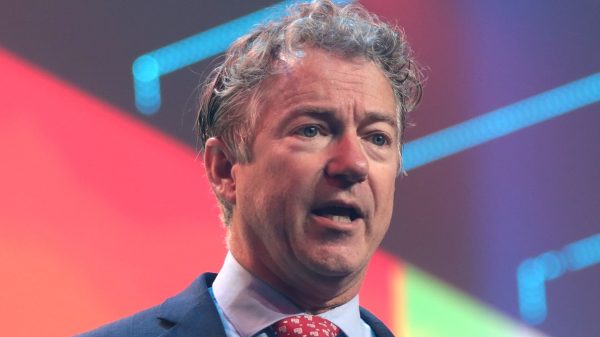By Associated Press
NEW YORK (AP) — Wall Street is already making big bets on what take two for a White House led by Donald Trump will mean for the economy.
Since Election Day, investors have sent prices zooming for stocks of banks, fossil-fuel producers and other companies expected to benefit from Trump’s preference for lower tax rates and lighter regulation. For retailers, meanwhile, the outlook is murkier because of uncertainty about whether they’ll be able to absorb any of the higher costs created by tariffs.
Professional investors are warning about the risk of getting carried away by the momentum. While strong rhetoric on the campaign trail can cause these big swings, not all of the promises turn into actual policy. Plus, the broad U.S. stock market tends to move more on long-term growth in profits than anything else.
— Stan Choe
Here’s a look at where Wall Street is placing its bets at the moment:
Technology
Technology stocks soared in Trump’s first term, helped by the administration’s tax policies. But the relationship was tempestuous: Trump’s immigration stance threatened a source of high-skilled immigrants that comprises a significant part of the industry’s work force and his trade wars threatened international sales and supply chains.
This time around, tech could benefit from an anticipated loosening of antitrust regulation that discouraged big deals from getting done and threatened to rein in the power of Google, Apple and Amazon. What’s more, Trump is expected to clear the way for Big Tech to make more inroads in artificial intelligence technology — an area increasingly seen as a crucial battleground in the duel for global power between the U.S. and China.
Trump’s vow to impose tariffs and other restrictions on trade does pose a potential downside for chip makers, particularly stock market darling Nvidia. A possible rollback of Biden administration efforts to boost U.S. semiconductor production also is a concern.
Still, in a sign of tech’s more conciliatory attitude, Trump’s election was greeted by congratulatory posts from most of the industry’s luminaries, including Apple CEO Tim Cook, Amazon CEO Andy Jassy and Google CEO Sundar Pichai.
— Michael Liedtke
Retail

Trump’s victory brings a big dose of uncertainty for the retail industry.
Trump has proposed extending 2017 tax cuts for individuals and restoring tax breaks for businesses that were being reduced. He also wants to further cut the corporate tax rate. Those would be tailwinds for shoppers and businesses, analysts said.
But the president-elect’s trade proposals could have a huge downside. He’s proposed 60% tariffs on Chinese goods and tariffs of 10% to 20% on other imports. Neil Saunders, managing director of GlobalData, a research firm, said retailers would either take a big hit on profits or be forced to increase prices.
As opposed to Trump’s first term, retailers will have a harder time absorbing tariffs this time because their costs of doing business are already higher, Saunders said.
Many companies, including Nike and eyewear retailer Warby Parker, have been diversifying their sourcing away from China. Shoe brand Steve Madden says it plans to cut imports from China by as much as 45% next year.
The National Retail Federation is forecasting higher prices for U.S. shoppers if Trump’s new tariffs are implemented. For example, an $80 pair of men’s jeans would cost $90 to $96.
— Anne D’Innocenzio
Energy

Trump has said he wants to “drill, drill, drill” starting on Day 1 of his presidency, so it’s expected that traditional fossil fuel-focused companies will get a boost and renewable energy outfits could be disadvantaged.
Oilfield services companies including Haliburton and Schlumberger would likely benefit from initiatives to expand drilling in the Gulf of Mexico and Alaska. Natural gas companies including EQT and CNX Resources could benefit from facilities and pipeline projects. Meanwhile, clean energy companies, such as First Solar and many electric vehicle makers, could have a harder time growing if Trump cuts tax credits and other incentives for the industry.
But remember Trump’s first term, says Austin Pickle, investment strategy analyst at Wells Fargo Investment Institute. The thought back then, like now, was that Trump would boost prices for oil-and-gas stocks. But energy stocks ended up struggling late in his term when the price of oil briefly went below zero during the COVID-19 pandemic.
— Damian Troise
Health Care
Drugmakers, insurers and other health care companies could benefit from fewer regulatory roadblocks to mergers and a lighter regulatory stance overall.
Insurers, in particular, may see some regulatory relief for Medicare Advantage plans, which are privately run versions of the government’s Medicare program mainly for people ages 65 and older. Under Democratic leadership, some insurers were facing smaller bonus payments tied to their Medicare Advantage plans. Some drugmakers are facing revenue hits on certain drugs covered by Medicare. Those challenges could abate under Republican rule, analysts at Morningstar noted.
A second Trump administration also may challenge health care companies.
The approval of drugs and vaccines could become less predictable, depending on the role anti-vaccine activist Robert F. Kennedy Jr. plays, said Morningstar analyst Karen Andersen.
Health insurers that sell coverage on the Affordable Care Act’s insurance marketplaces or manage state-and-federally funded Medicaid coverage could face challenges if Republicans attempt to dismantle parts of the law, said Julie Utterback of Morningstar.
In particular, extra subsidies that help people buy marketplace coverage are slated to expire at the end of next year, which could lead to enrollment drops.
— Tom Murphy
Autos
The auto industry is another that should welcome less restrictive regulations but dread tariffs.
Trump is likely to roll back or scrap tailpipe emissions limits for 2027 through 2032 imposed by the Biden administration. Companies like General Motors, Ford and Stellantis could more easily sell larger, less-efficient vehicles without paying hefty fines.
Companies would also face less pressure to sell more electric vehicles to offset emissions from big trucks and SUVs, which make big profit margins, said Kevin Tynan, research director for The Presidio Group.
Tariffs are a different story. Trump has threatened tariffs on imported vehicles to force more production in the U.S. The threat of 100% tariffs on vehicles imported from Mexico is a big concern.
Morningstar analyst David Whiston said such tariffs could potentially cost General Motors, Stellantis and Ford billions in profits. About 30% of GM’s North American production comes from Mexico, while it’s 24% for Stellantis and about 15% for Ford.
Whiston notes that tariffs on vehicles built in Mexico would violate the U.S.-Mexico-Canada free trade agreement negotiated during Trump’s first term. But that can be reworked in July of 2026. Whiston said those tariffs would mean higher prices and many buyers already can’t afford the current average price of over $47,000.
Trump also has threatened to get rid of electric vehicle tax credits that have helped boost sales of EVs.
— Tom Krisher
Banks

Bank stocks could benefit if Trump’s policies boost the U.S. economy and more customers apply for loans. In addition, Wells Fargo banking analyst Mike Mayo believes the Trump victory can usher in a “new era” of lighter financial regulation after 15 years of stricter oversight following the financial crisis of 2008-2009. Under Biden, banks were facing requirements to set aside more capital to reduce risk, but the Trump administration is likely to take a step back.
Dealmaking could see a revival under Trump, which would help banks with large investment banking operations like Morgan Stanley and Goldman Sachs. That also increases the odds the pending merger between Capital One Financial and Discover Financial gets federal clearance. Regional banks should benefit if a growing economy prompts the creation of new small businesses or the expansion of existing ones.
— Paul Harloff
Building materials and construction
Construction companies are looking at a mixed bag, with lighter regulations a plus but higher materials costs a potential minus.
Construction companies, including homebuilders KB Home and PulteGroup, could benefit from tax incentives and more friendly regulations. A surge in development could help relieve some pressure on a housing market pressured by a lack of supply for new homes. A boost in construction could also help suppliers of raw materials including steel and aggregates used in concrete.
But the potential for overall raw material price increases is a threat. Higher costs could cut into profits for construction companies and homebuilders. Steel tariffs could help shield U.S. producers from competition, but a jump in global prices as a result could negate that benefit, while also squeezing construction companies.
Plans for an immigration crackdown could worsen an existing labor shortage and result in delays for projects.
— Damian Troise
Crypto
Trump, once a crypto skeptic, has pledged to make the U.S. “the crypto capital of the planet” and create a “strategic reserve” of bitcoin. Money has poured into crypto assets since he won. Bitcoin, the largest cryptocurrency, has surged above $86,000. Shares of crypto platform Coinbase have surged more than 60% since the election.
Crypto industry players welcomed Trump’s victory, in hopes that he would push through legislative and regulatory changes that they’ve long lobbied for. And Trump had promised that, if elected, he would remove the chair of the Securities and Exchange Commission, Gary Gensler, who has been leading the U.S. government’s crackdown on the crypto industry and repeatedly called for more oversight.
— Wyatte Grantham-Phillips
Originally Published:

















































